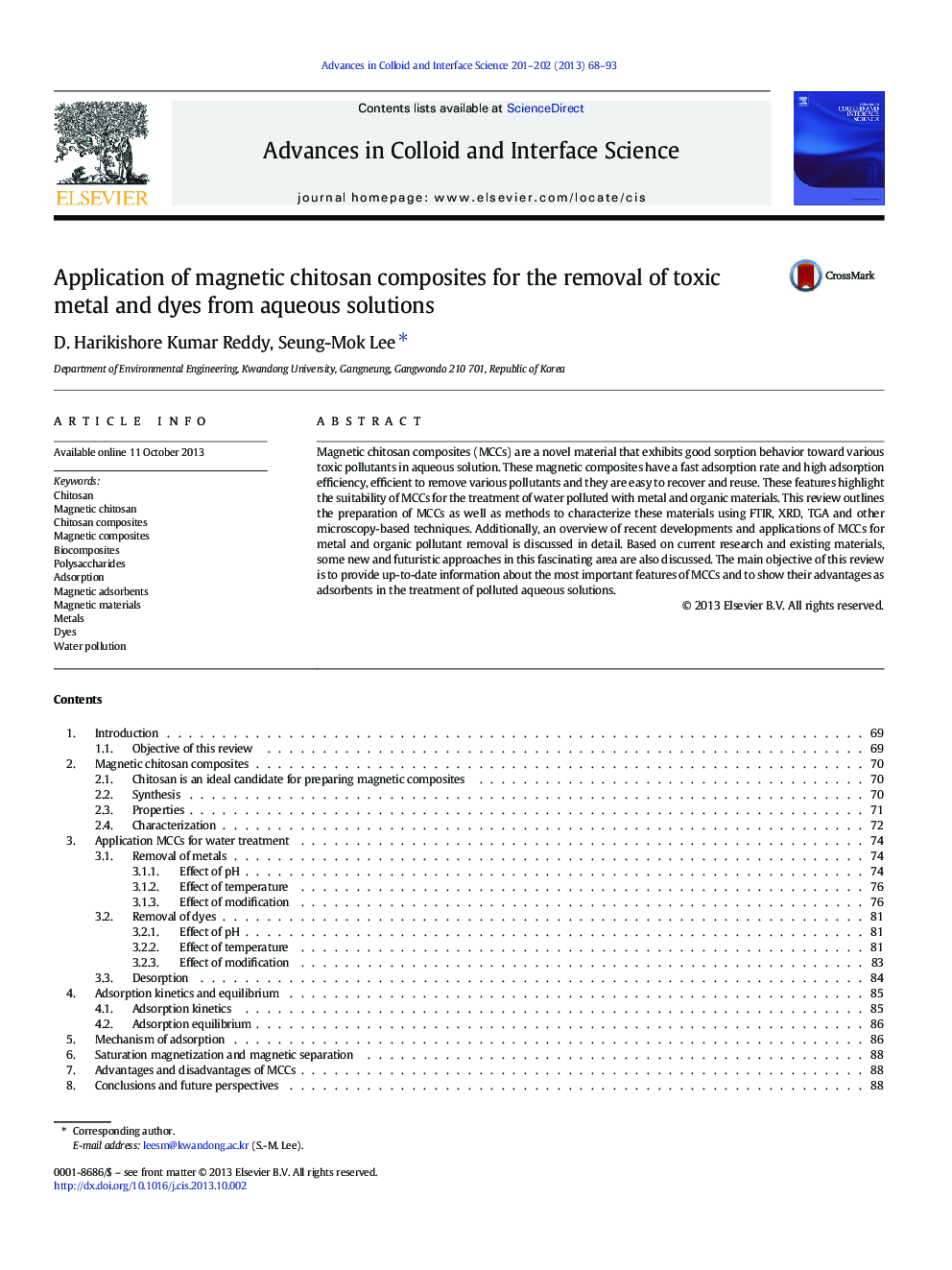| Article ID | Journal | Published Year | Pages | File Type |
|---|---|---|---|---|
| 590773 | Advances in Colloid and Interface Science | 2013 | 26 Pages |
•Outline of preparation, characterization and properties of magnetic chitosan adsorbents•Inorganic and organic pollutant removal from water using MCCs has been reviewed.•Adsorption kinetics and equilibrium isotherm models were reviewed.•Magnetic separation and adsorption mechanism have been discussed.•The outlook for potential applications and limitations was also discussed.
Magnetic chitosan composites (MCCs) are a novel material that exhibits good sorption behavior toward various toxic pollutants in aqueous solution. These magnetic composites have a fast adsorption rate and high adsorption efficiency, efficient to remove various pollutants and they are easy to recover and reuse. These features highlight the suitability of MCCs for the treatment of water polluted with metal and organic materials. This review outlines the preparation of MCCs as well as methods to characterize these materials using FTIR, XRD, TGA and other microscopy-based techniques. Additionally, an overview of recent developments and applications of MCCs for metal and organic pollutant removal is discussed in detail. Based on current research and existing materials, some new and futuristic approaches in this fascinating area are also discussed. The main objective of this review is to provide up-to-date information about the most important features of MCCs and to show their advantages as adsorbents in the treatment of polluted aqueous solutions.
Graphical abstractFigure optionsDownload full-size imageDownload as PowerPoint slide
